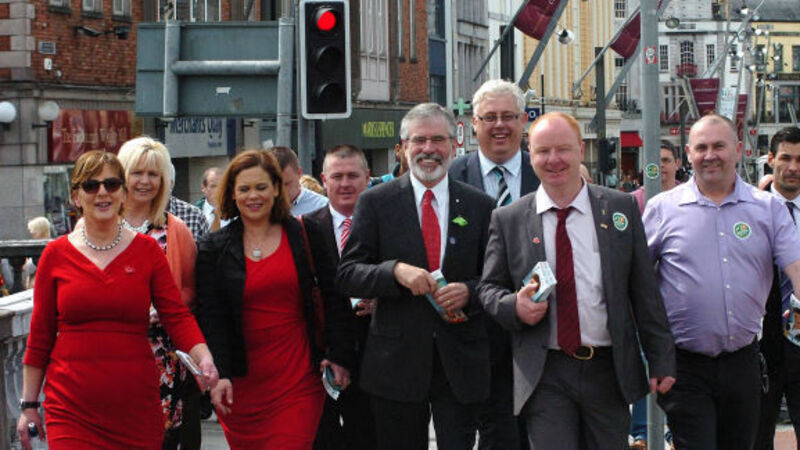A meeting of Sinn Féin’s past and present

Party president Gerry Adams was making a star turn to canvas with the party’s MEP candidate for Ireland South, Liadh Ní Riada, and local city councillor Chris O’Leary.
Gerry, accompanied by Ní Riada and O’Leary, hopped out of a black Sinn Féin bus, beamed at shocked locals and proceeded to stroll around in the midday sunshine, shaking hands with children, star- struck elderly people, and delighted teenagers sitting on the grass, pier wall, or at tables outside a coffee shop.
















